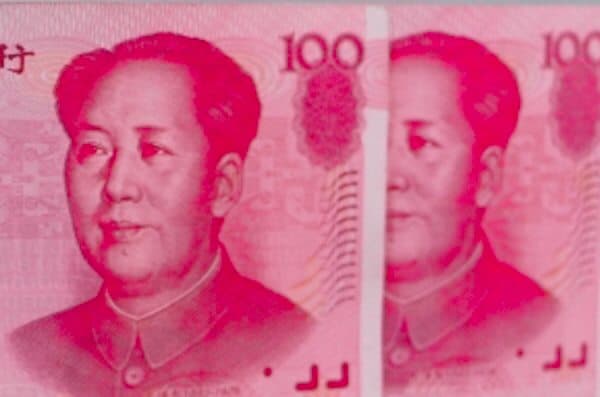China’s Big Lenders and Fintech Firms to Distribute Virtual Yuan Tokens, which will be Highly Traceable, Potentially Amplifying Government’s Power: Report
by Omar Faridi
Andy Mukherjee argues in a recently published Op-Ed in the Washington Post that the virtual yuan could potentially transform “the relationship between money, economic power, and geopolitical clout.”
The digital renminbi has been under development since 2014. Its top-level design was recently finalized and its pilot has been launched in several major Chinese cities.
Mukherjee writes:
“If the experiment succeeds, this new cash, valued the same as the familiar banknotes bearing Mao Zedong’s image, will become the world’s first sovereign token to reside exclusively in the ether.”
He adds:
“Outside the People’s Republic, the big question is if the digital yuan is a challenger to the dollar.”
However, within China’s borders, there’s a more “mundane” reason or explanation for why the nation’s government wants to convert physical banknotes in circulation into digital tokens, according to Mukherjee’s research.
He points out that Chinese residents have been able to bypass computer and networking systems and credit cards in order to perform transactions via mobile payment apps, which has led to large funds investing in high-return wealth management products.
He claims that this has “led to the accumulation of risks in opaque shadow banking.”
The virtual renminbi, which will be circulated to China’s residents through local banks, will aim “to restore this missing balance; it will allow authorities to ‘regulate an overstretched debt market more effectively’” Mukherjee notes, while referencing comments from Nathan Chow, economist at DBS Group Holdings Ltd.
Mukherjee claims:
“It isn’t a coincidence that China’s project picked up speed last year as Facebook Inc. announced Libra.”
The controversial Facebook-led Libra stablecoin initiative plans to hold its value against digital assets pegged 1-to-1 with major world currencies like the US dollar, instead of the highly volatile Bitcoin (BTC).
Local reports confirm that half the May transport subsidy for China’s Suzhou municipal workers will be in the form of digital currency electronic payment (DCEP).
According to Mukherjee:
“The [digital yuan] pilot plan in Xiong’an, a satellite city of Beijing, includes coffee shops, fast food, retailers, theaters and bookstores, Goldman Sachs Group Inc. has noted. The other trials are reserved for Chengdu and Shenzhen.”
Chinese payments giants Alipay and WeChat Pay account for a major portion of China’s 80% of mobile phone users who use their devices to make digital payments, which is significantly more than any other place in the world.
To the end user, DCEP online wallets being offered by the nation’s largest state banks will appear and function the same way that regular digital wallets do.
However, the new system will allow low-value transactions to be processed even if both parties are not connected to the internet at the time of the transaction.
Mukherjee explains:
“Also, this is sovereign liability, safe if an intermediary goes bankrupt. The big four lenders — and later Fintech firms — will distribute the tokens, but the funds won’t reside in bank accounts. This will be unlike existing payment apps that only move one institution’s IOUs to another.”
He claims:
“[With the introduction and adoption of this new system,] the anonymity of cash will no longer exist. Authorities can look under the hood of pseudonymous transactions for unwanted activity … with the [COVID-19] outbreak giving legitimacy to intrusive physical contact tracing, the case for financial tracing gets even stronger.”
He continues:
“Exchange of digital yuan between customers and merchants will pop up on a centralized ledger, and go through far more swiftly than in Bitcoin-style setups that rely on widely distributed ledgers of asset ownership.”
He argues that China has given its giant financial institutions an opportunity to match the payment technology developed by Fintech service providers.
He predicts:
“The digital yuan may have started modestly, but it might pave the way for changes that are both ambitious and long outlast the coronavirus.”
He concludes:
“It’s possible that a central bank in another country would bypass intermediaries altogether, potentially making the state the monopoly supplier of money to retail customers.”